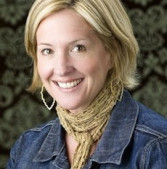At the Greater Good Science Center, we:
- equip individuals with science-based knowledge and skills that shape their knowledge, beliefs, and behavior, inspiring shifts in a more “prosocial” direction;
- empower people to become agents of change in their organizations and communities, helping them support the well-being of others and changing institutions from the inside out;
- engage in “field building” by fostering a broad, inclusive cultural conversation about the importance of compassion, connection, gratitude, purpose, and other virtues while providing a trusted, science-based voice to the public.
Are we succeeding? Over the past year:
- our online magazine had more than 7 million readers, for more than 14 million pageviews—and over the past decade, we've eclipsed 60 million readers and 100 million pageviews;
- we exceeded 500,000 subscribers to our email newsletters;
- the number of students registered for our Science of Happiness online courses eclipsed 1.1 million;
- we passed 60 million downloads for our Science of Happiness podcast.
What impact are we having on them? When we survey our audience:
- 99% say we have expanded their understanding of the keys to well-being;
- 96% say we have increased their motivation or ability to help others;
- 95% say our resources have improved their overall happiness and well-being;
- 94% say our resources have strengthened their relationships with other people;
- 99% of educators and 98% of health professionals in our audience say they gain useful professionals skills and knowledge from our work;
- 98% of educators and 94% of health professionals report that our resources support their own well-being and 90% of those health professionals say the benefits extend to their patients/clients.
In fact, when we ask members of our audience—which includes many parents, managers, and faith leaders, in addition to educators and health professionals—how many people they serve and influence through their work, it becomes clear that our actual reach and impact is exponentially greater than the numbers above suggest. What’s more, when we survey students from our Science of Happiness online course before and after the course, they report:
- significant increases in happiness, life satisfaction, and feelings of “flourishing” in life from the start of the course to the end—changes that persist for at least four months after they complete the course;
- significant decreases in stress, loneliness, and symptoms of illness—again, these hold for at least four months after the course ends;
- stronger feelings of connection to all of humanity, even those very different from themselves;
- week-by-week increases in positive emotions and decreases in negative emotions, consistent with an overall trajectory of greater happiness during the course;
- and when we survey students’ close friends, they say the students seem more happy, content, optimistic, and calm, and less stressed, irritable, and self-critical, from before to after the course—and these changes, too, persist for at least three to four months.
Even these numbers don’t fully capture our cultural impact. Our work is recognized and applied in many different ways, some of them surprising.
- Our co-founder and faculty director Dacher Keltner was deeply involved in shaping the award-winning Pixar film Inside Out and its sequel;
- Our education director, Vicki Zakrzewski, has advised school systems around the world—including in China, India, the United Arab Emirates, Thailand, and Belgium—on how to foster kindness and emotional well-being among their students.
- Our reach and impact are extended further by the many media outlets that have featured our work, including The New York Times, NPR, The Wall Street Journal, CNN, The San Francisco Chronicle, Scientific American, and many television news programs.
- Media produced by the GGSC have won the Society of Professional Journalists Excellence in Journalism Award, a Gold Medal at the International Radio Festival, the Social Psychology Network Action Teaching Award, and the Council on Contemporary Families Award for Outstanding Online Coverage of Family Issues. Our Science of Happiness podcast has been a finalist for a Webby award multiple times; our magazine has been a finalist for the prestigious Maggie Award and was nominated multiple times for Independent Press awards.
- Members of our staff have also gathered many individual awards for their work. UC Berkeley has recognized Dacher Keltner for his teaching and bestowed the Chancellor’s Outstanding Staff Award on Emiliana Simon-Thomas for her work on our Science of Happiness course. Time magazine has named GGSC Executive Director Jason Marsh one of “27 People Bridging Divides Across America.” Greater Good magazine editor Jeremy Adam Smith has won numerous awards for his journalism from the Society of Professional Journalists, the Education Writers Association, and the California Teachers Association, among others.
We achieve this impact with the help of more than 1,500 supporting members and donors. Please consider supporting our mission and programs!
